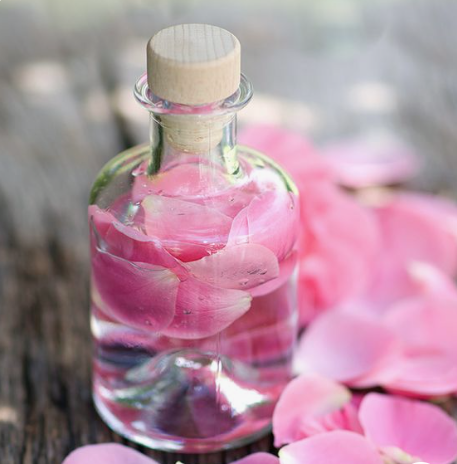Why the tradition of rose water is revered across the Arab world
Rose water is the residual liquid distilled from the petals, buds and stems of roses. Across the Arab world, rose water is used in a myriad of ways including as a key ingredient in staple dishes and desserts like baklava and kanafeh. It may be typical when a guest enters an Arab home, for the host to sprinkle rose water into their palms as a show of warm welcome. As referenced in this article, Rose Water: An Intrinsic Part of Arab Culture.
Rose water is also an important ingredient in many beauty care products and rituals, its antibacterial and antioxidant qualities do wonders to the skin. Black kohl, used for eyeliner throughout the Middle East, is often mixed with rose water to make a paste, which is said to aid impaired vision.
Beyond these traditional practices, rose water plays a symbolic role in religious ceremonies and cleansing rituals. The Holy Ka'aba in Mecca, the most sacred mosque in the Islamic faith, is washed twice a year during the Haj and Ramadan with rose water.
Known to grow in the mountains of Oman, Iran and across the Arabian peninsula, roses require little water to grow and prosper in dry, arid climates. However, climate change may be changing the harvesting and pruning times of roses, ultimately affecting the livelihoods of local farmers and distillers.
We exclusively import our rose soap from Syria. The Damask Rose Body Bar is moisturizing for the skin and is made with only five ingredients. Each purchase supports an at-risk artisan community and their family in Syria, like our soap manufacturer in Aleppo. Learn more or shop our Damask Rose soap here.


